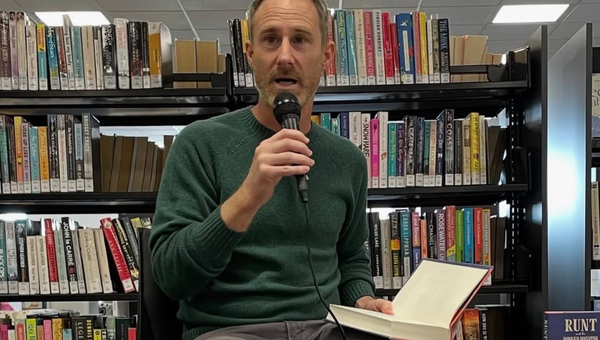
Rishi Sunak has been rocked by the resignation of his immigration minister after rejecting demands to opt out of European human rights laws to revive the Rwanda policy.
Robert Jenrick told the Prime Minister on Wednesday that his new draft legislation aimed at stopping small boat crossings “does not go far enough” and is a “triumph of hope over experience”.
Mr Sunak’s long-term political ally argued that he had to quit because he has “such strong disagreements” with the Government’s approach to immigration.
Mr Jenrick had been seen as taking an increasingly firm approach over plans to stop asylum seekers making unauthorised crossings of the Channel in small boats in recent weeks.
The draft Bill compels judges to treat Rwanda as a safe country after the Supreme Court ruled the scheme was unlawful over risks to refugees.
The legislation, which must be voted on by Parliament, gives ministers the powers to disregard sections of the Human Rights Act.
But it does not go as far as providing powers to dismiss the European Convention on Human Rights, as hardliners including sacked home secretary Suella Braverman have demanded.
Mrs Braverman’s allies made clear that the legislation is “fatally flawed”, indicating that she believes it will quickly lead the Tories into “electoral oblivion”.
Mr Sunak reportedly told Conservative backbenchers at the 1922 Committee shortly before Mr Jenrick’s resignation became apparent that they must “unite or die”.
The immigration minister had been conspicuously absent during a statement to the Commons on the new legislation by James Cleverly, who has been Home Secretary for less than a month.
It is with great sadness that I have written to the Prime Minister to tender my resignation as Minister for Immigration.
— Robert Jenrick (@RobertJenrick) December 6, 2023
I cannot continue in my position when I have such strong disagreements with the direction of the Government’s policy on immigration. pic.twitter.com/Zg3ezFJr8t
Shortly after Mr Cleverly confirmed the resignation of the minister from his department, Mr Jenrick published his departure letter to the Prime Minister on social media.
He said he was “grateful” for Mr Sunak moving towards his position on the legislation, but added he does not “believe it provides us with the best possible chance of success”.
“A Bill of the kind you are proposing is a triumph of hope over experience,” he wrote.
“The stakes for the country are too high for us not to pursue the stronger protections required to end the merry-go-round of legal challenges which risk paralysing the scheme and negating its intended deterrent.”
Having supported Mr Sunak in both of last year’s Tory leadership contests, Mr Jenrick reminded him that they have been “friends for a long time”, but said they must do “whatever it takes” to stop small boats crossing the Channel.
“This emergency legislation is the last opportunity to prove this, but in its current drafting it does not go far enough,” he added.
The Prime Minister had argued that the legislation will ensure his flagship asylum scheme “cannot be stopped” as he battles the issue of small boat crossings of the Channel.
“Through this new landmark emergency legislation we will control our borders, deter people taking perilous journeys across the Channel and end the continuous legal challenges filling our courts,” Mr Sunak said.
And we will disapply sections of the Human Rights Act from the key parts of the Bill, specifically in the case of Rwanda, to ensure our plan cannot be stopped
Mr Cleverly wrote on the front page of the legislation that he cannot guarantee that it is compatible with the European Convention on Human Rights.
The Safety of Rwanda (Asylum and Immigration) Bill states that it is the “judgment of Parliament that the Republic of Rwanda is a safe country”.
The Bill says that “every decision-maker” – specifically mentioning the courts – “must conclusively treat the Republic of Rwanda as a safe country”.
It states that ministers will decide whether to ignore interim measures issued by the European Court of Human Rights which have previously scuppered flights.
Combined with the new legally binding treaty brokered with Rwanda, the Government hopes they can get the policy first announced in April last year off the ground.
The publication of the legislation came after Mrs Braverman warned the Tories face “electoral oblivion in a matter of months” if the legislation introduced is “destined to fail”.
The sacked home secretary, who commands support on the party’s right, said the Bill must contain powers to override the European Convention on Human Rights and “all other international law”.
But complying with her demands would have left Mr Sunak facing possible ministerial resignations, an outcry from his MPs from the more centrist One Nation faction and an even rougher ride for the Bill through the House of Lords.
The Tory left has urged ministers to ensure the country follows rule of law rather than trying to undermine the oversight of the Strasbourg court.
A source close to Mrs Braverman quickly made clear that the Bill “doesn’t come close” to meeting her tests, arguing asylum seekers will still be able to make human rights appeals against removals.
“It is fatally flawed,” the ally said.
“It will be bogged down in the courts for months and months. And it won’t stop the boats. It is a further betrayal of Tory voters and the decent patriotic majority who want to see this insanity brought to an end.”
The One Nation grouping, however, cautiously welcomed that the draft legislation will “continue to meet the UK’s international commitments which uphold the rule of law”.
The right-wing European Research Group (ERG) will assemble its so-called “star chamber” of lawyers to scrutinise the legislation before the Commons vote.
Rwanda’s foreign affairs minister Vincent Biruta argued that Kigali would have walked out of the deal, which has already seen the UK hand over £140 million, if the Government had sought to break international law.
“It has always been important to both Rwanda and the UK that our rule of law partnership meets the highest standards of international law, and it places obligations on both the UK and Rwanda to act lawfully,” he said.
“Without lawful behaviour by the UK, Rwanda would not be able to continue with the Migration and Economic Development Partnership.”







